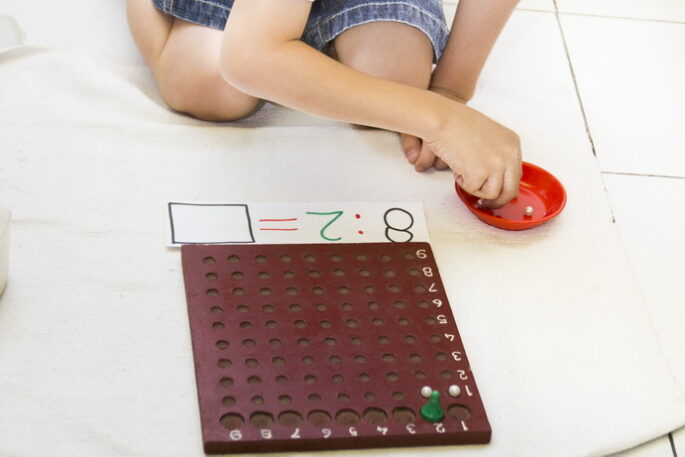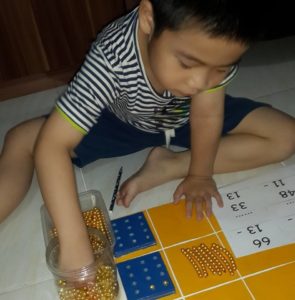
What is Montessori Education?

The Montessori Method is a unique educational approach founded by Dr. Maria Montessori over 100 years ago based on her scientific observations of young children’s behaviours. It is a holistic approach that values all aspects of a child’s development, including physical, emotional, cognitive and social development.
Montessori education recognizes that children have different ways of learning, and accommodates various learning styles in a supportive environment prepared to meet their needs. Each child learns at his own pace and advances through the curriculum when he is ready, guided by the teacher and an individualized learning plan. Children are given the opportunity to learn independently, interacting with the teacher when support or guidance is needed.
In a Montessori classroom, children learn by exploring and playing with specifically designed materials. Each material teaches one skill or concept at a time, and children work with it repeatedly at their own pace until it is mastered. Teachers act as facilitators, guiding and encouraging children throughout the learning process instead of giving instructions.
Multi-age groupings, where children of different ages work together, are implemented to foster peer learning. Younger children learn from older children, while older children reinforce their learning by mentoring and acting as role-models to their juniors.
Introducing children to Montessori as early as possible helps nurture their intrinsic desire to learn and encourage them to become a self-motivated, confident and enthusiastic learner with the abilities to think critically, work collaboratively and act boldly.
Benefits of Montessori education:
- Each child is valued as a unique individual
- Children develop creativity, sense of order, coordination, concentration and independence from an early age
- Children enjoy freedom within limits and develop self-discipline
- Children receive support in becoming active seekers of knowledge
